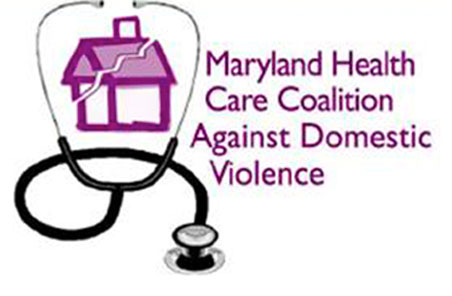In addition to its trainings, the Maryland Health Care Coalition Against Domestic Violence provides health care professionals and allied professionals materials that cover best practices on the health care response to intimate partner violence and abuse. All materials can be downloaded via the links below. If you would like to order printed materials that can be mailed to you, please complete the order form here.
*Materials with an asterisk are currently available for digital download only.
Intimate Partner Violence and Your Patient’s Health Brochure
Essential information for health care providers needing to recognize and respond to intimate partner violence with their patients. This brochure includes a screening and documentation guide, as well as Maryland and national resources.
A Guide for Health Care Professionals – Confidentiality and Reporting Requirements in Maryland
Essential information for health care providers needing to recognize and respond to intimate partner violence with their patients. This brochure includes a screening and documentation guide, as well as Maryland and national resources. The Coalition’s popular brochure provides guidance on when to report … and when not to report:
- Child Abuse and Neglect
- Sex Trafficking of Minors
- Vulnerable Adult Abuse
- Intimate Partner Violence
- Sexual Assault and Abuse
Intimate Partner Violence and Telehealth Postcard
With telehealth appointments becoming more widely used, assessing for intimate partner violence has become even more complicated for health care professionals. As such, this postcard includes safety tips and best practices when working with IPV patients via virtual visits.
The Health Impacts of Intimate Partner Violence
This double-sided infographic examines the impacts of intimate partner violence on the physical and mental health of those who experience it, expanding on particular topics such as strangulation, pregnancy, traumatic brain injury, and others.
Screen Document Refer Desk Reference for Medical Providers
This laminated 11 X 8.5 inch desk reference is double-sided with essential information for health care providers needing to recognize and respond to intimate partner violence with their patients. The desk reference includes recommended screening questions, as well as, documentation and referral best practices.
Screen Document Refer Desk Reference for Obstetricians and Gynecologists
This laminated 11 X 8.5 inch desk reference is double-sided with essential information for Obstetricians and Gynecologists needing to recognize and respond to intimate partner violence with their patients. The desk reference includes sample screening questions from the American College of Obstetricians and Gynecologists, as well as, documentation and referral best practices.
Badge Card (Horizontal)
This laminated ID-sized badge card is double-sided with essential information for health care providers needing to recognize and respond to intimate partner violence with their patients. The card includes mandated reporting and confidentiality requirements in Maryland, as well as, documentation and referral best practices. The cut-out at the top of the card allows for professionals to hang it on a lanyard or clip, ensuring that the information can be accessed any time and “on-the-go.”
Badge Card (Vertical)
This laminated ID-sized badge card is double-sided with essential information for health care providers needing to recognize and respond to intimate partner violence with their patients. The card includes mandated reporting and confidentiality requirements in Maryland, as well as, documentation and referral best practices. The cut-out at the top of the card allows for professionals to hang it on a lanyard or clip, ensuring that the information can be accessed any time and “on-the-go.”
*Temporary Protective Orders (TPOs): Electronic Filing and Video Conferencing Hearings
This resource, available for digital download outlines the process for obtaining Temporary Protective Orders (TPOs) in Maryland through electronic filing and video conferencing hearings. It details the required forms, submission methods, and procedures for video hearings, emphasizing accessibility for survivors at approved locations, including hospitals. Additional resources and follow-up steps are provided to ensure continued protection for survivors.




